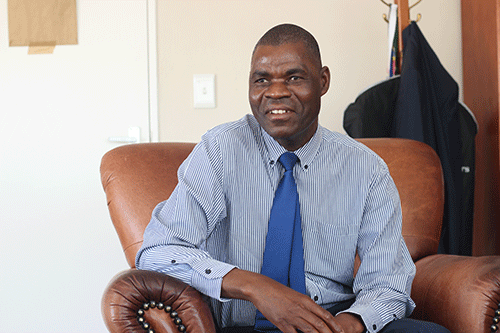Namibia’s Ombudsman, Basilius Dyakugha has taken a dig at Cabinet ministers who use their positions and sensitive information to enrich themselves and their cronies.
Saying this is in conflict with the country’s laws, the lawyer said through equitable wealth distribution, Namibia can rid itself of extreme poverty.
The chief human rights defender made the observations during a recent public lecture on the role of the ombudsman and social justice in the Namibian context, organised by the Affirmative Repositioning (AR) movement.
The session covered issues including access to free quality education, environmental protection and the upholding of human rights.
Article 42 of the Namibian Constitution inter alia blocks members of the Cabinet from using their position or information entrusted to them confidentially to enrich themselves, directly or indirectly.
Dyakugha questioned how ministers and their cronies are allowed to or have benefited handsomely from State contracts, fishing quotas, resettlement farms and other concessions.
“Where are fishing quotas decided? At Cabinet…but we have ministers who have fishing quotas [the same quotas decided at Cabinet where they sit],” he said.
He then challenged Namibia’s leaders to preoccupy themselves with innovative ideas as opposed to being stuck in past glories.
“Why do you want to talk about the [liberation] struggle all day [when] it is documented…capital is not scarce [in Namibia], [but] vision is,” he charged.
Some members of the audience also had their say to the ombudsman. Burning issues included illegal sand mining in northern Namibia, illegal fencing of communal land and inhabitable living conditions in informal settlements.
Damara Kings Council Youth Group chairperson, Bebe |Husab said his people are excluded from the country’s development endeavours.
“In this country, tribalism and nepotism are ticking time bombs. The Damara people are not economically supported. What policies are you going to implement [to address this],” he said.
AR legal head, Maitjituavi Kavetu questioned the ombudsman’s independence as espoused in the Constitution.
“Your budget comes from the justice ministry, the same ministry that you must investigate. How will this ministry give you enough resources when it is the culprit?”
Kavetu continued: “You need to ensure your independence. You are only accountable to the Constitution of the Republic. We also want to see our ombudsman more in courts fighting for our people, especially when your reports are ignored.”
Dyakugha said most of the issues will be addressed by the revamped ombudsman Act, whose draft bill is currently before the Cabinet Committee on Legislation and expected to head to parliament during the first quarter of this year.
Should it come into force, it will arm the office with greater autonomy and broaden its mandate. The ombudsman will also be empowered to initiate investigations rather than wait on the public to file complaints, and there will be enforcement time limits for parliament to act on the ombudsman’s recommendations.
– Nampa


